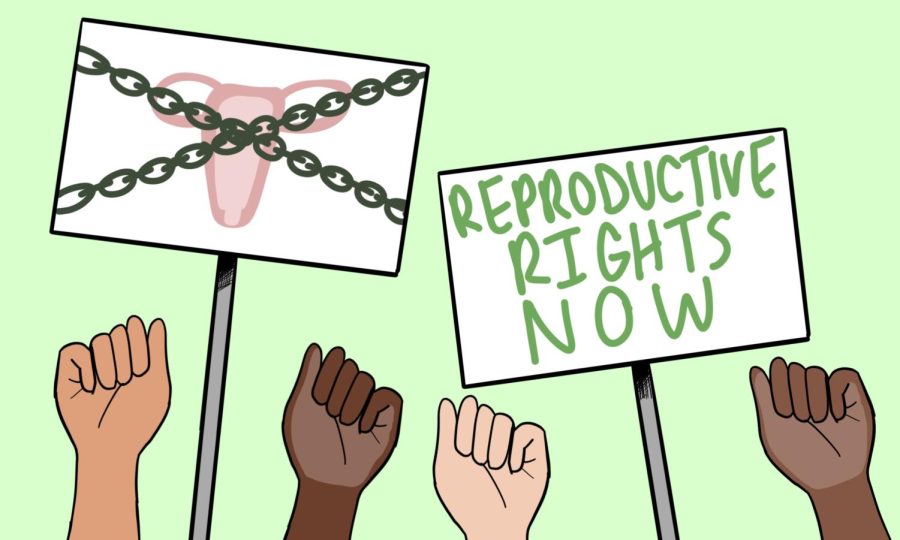NU orgs aim to level up community activism with ‘Taking Action for Reproductive Justice’
Daily file Illustration by Olivia Abeyta
The Women’s Center, NU Repro and the Gender and Sexuality Studies Program will offer a four-part activism series titled, “Taking Action for Reproductive Justice.”
March 30, 2023
The Women’s Center, the student organization NU Repro and the Gender and Sexuality Studies Program have teamed up to host “Taking Action for Reproductive Justice.” The four-part conversation and workshop series will help develop tools to organize for reproductive justice, abortion rights and bodily autonomy.
The programming will start April 10 with a fireside chat about the meaning of reproductive justice. Following sessions include a discussion on community-based organizing, a workshop exploring healing justice and a conversation about direct action and protest.
Northwestern community members can register for the full series or any of the individual sessions.
According to Women’s Center Director Sarah Brown, the initial spark for the series came last spring after the draft of the Supreme Court’s Dobbs v. Jackson Women’s Health Organization decision — which overturned Roe v. Wade — was leaked.
“As people got more familiar with the subject, we wanted to build them towards a place where they would also have the skills to get involved,” Brown said. “A lot of people felt very activated by the Dobbs decision and the continuing news about abortion becoming harder and harder to access in neighboring states.”
“Taking Action for Reproductive Justice” aims to help people develop the skills to go from growing interested in reproductive justice to becoming activists, Brown said. She added programming focuses on developing the tools to organize rather than sticking to informational content.
Even though someone might know a lot about the topics, Brown said, engaging in activism takes training.
Weinberg sophomore and former Daily staffer Gwen Setia, co-founder of NU Repro, said students in particular may find it difficult to take action. She said she hopes the series can help students bridge the gap between knowledge and practical application.
“You can learn about an issue, but maybe you don’t know enough about your environment or your power to enact change,” Setia said. “Learning those practical applications of advocacy principles and how to actually put something into direct action is really important.”
Setia said she would love to see more of a “concerted effort” toward reproductive justice at NU.
Student organizations Menstrual Equity Activists, Planned Parenthood Generation Action and Sexual Health and Assault Peer Educators also lent a hand in planning the series.
“I hope the series is equally as uplifting as educational,” said Weinberg junior Lili Pope, who is co-president of MEA.
Subject-area experts — including NU alumni, local community organizers and NU faculty — will share their knowledge to assist students’ efforts to take action.
Brown emphasized that community activism is essential to making progress toward reproductive justice.
“Everything that’s ever been achieved that has increased our rights or improved justice was done collectively,” Brown said. “Doing it alone is also terrible and lonely and too hard. We need to be there for one another.”
Email: [email protected]
Related Stories:
— Author Leslie J. Reagan talks abortion history, post-Roe reality
— Pro-choice advocates march through Evanston for reproductive freedom


